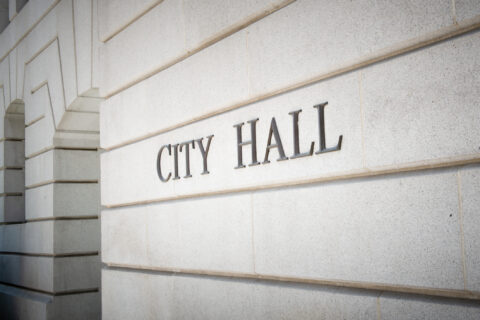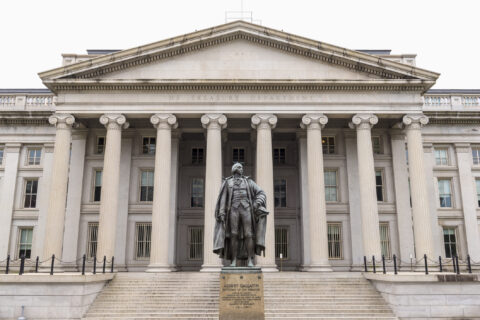As the American Rescue Plan Act (ARPA) brings generational investment into communities across the country, city leaders have the opportunity to leverage their internal operations, partnerships, and work across government to help address the negative impacts from COVID-19 on residents’ credit and intentionally focus on their economic mobility.
Across the country, workers have seen their hours cut, leading to missed payments that can show up on their credit report. A credit report will include information on an individual’s current and previous addresses and employers, open and closed accounts, payment history, recent loan applications, accounts in collection, and public records information such as bankruptcy, foreclosures, and evictions. The information included in a credit report impacts an individual’s credit score. Lenders use the credit score and report to determine if an individual should be offered credit (i.e., loans, credit cards, etc.) and at what rate. Those with a good credit score could expect to save $4,020 on a $10,000 5-year auto loan compared to someone with a poor credit score.
Take Advantage
The national credit bureaus are offering individuals weekly access to credit reports until April 20, 2022. This is an excellent opportunity for local leaders to share this with their constituents and connect residents with providers to help them address any errors on the credit report.
Employers and landlords also use credit reports to determine who they should hire or who rents an apartment. The impacts of eviction or missing a payment will create a hole that individuals and families will have to escape. In the case of eviction, this mark will stay on a person’s credit report for up to seven years. Cities can, where present, work with the local housing court to not process evictions, among other activities which would stop any negative marks from showing up on a credit report in the first place.
Cities can work with local financial institutions to develop Bank On Programs connecting residents and staff to safe banking services. Helping residents gain familiarity with foundational services like a bank account can lead them to other financial products like a secure credit card. Municipalities can also work with credit unions and local Community Development Financial Institutions (CDFIs) to create or promote credit building products. Credit building products combine a secure loan with a savings account to help individuals establish credit. These products are a necessary tool for residents who may have missed a payment because of job loss, didn’t have a banking relationship in the past, or are survivors of domestic abuse who lack credit history. Additionally, city leaders can also make sure that their local CDFIs are accessing funding made available by the Department of Treasury to expand credit building products.
Local governments can also review the city’s services to residents, from housing to utilities to personal or business loans. City leaders should confirm which payments are being reported to the credit bureaus and incorporate reporting payments into regular operations. This practice may require investment in tracking software and staff time or partnership with a local financial institution willing to process payments and report the information on the city’s behalf. By reporting payments, municipalities can help their residents build credit and pay less in the long term for financial services.
Credit is an essential component of residents’ path to a better job, a better apartment, and a more financially secure life. ARPA funds offer the opportunity for big thinking that supports the financial future of residents, and those cities that incorporate credit building into their plan will allow more residents to take advantage of the prosperity to come as we build back better.
Learn More
Visit NLC’s ARP Resource Page for all the latest events and information, including the latest federal guidance and funding availability.








